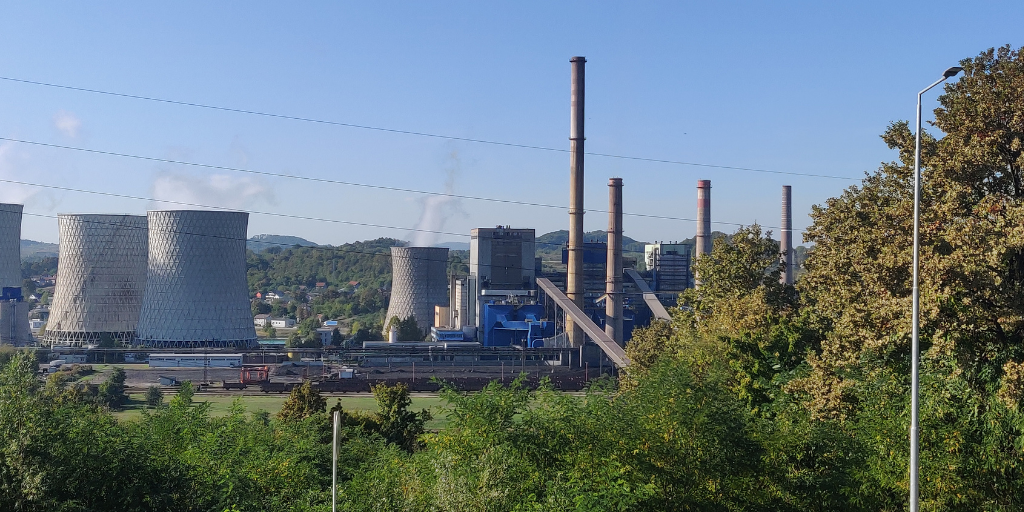Yesterday the Federation of Bosnia and Herzegovina’s Parliament voted to extend the lifetime of the antiquated Tuzla 4 and Kakanj 5 coal units, in clear breach of the Energy Community Treaty. The move condemns the public to yet more lethal air pollution.
Pippa Gallop, Southeast Europe Energy Advisor | 25 March 2022

Right at the end of last year, the Federation of Bosnia and Herzegovina (FBIH)’s Parliament adopted changes to the Law on Electrical Energy allowing the FBIH government to limit electricity price rises for companies if a price rise of more than 20 per cent is expected compared to the previous year. This was followed on 7 January this year by a government decision to do just that.
While undoubtedly motivated by real needs to shield certain consumers from the Europe-wide energy crisis caused by high gas prices and consequently high electricity prices this winter, the decision was taken in haste without any attempt to identify which companies would be most affected by price rises. It shields all types of companies, irrespective of their ability to pay.
The FBIH government’s decision instructs the Federal Ministry for Energy, Mining and Industry to analyse the impacts of the decision within three months of its entry into force, and if necessary to propose some adjustments. But already in early February, Elektroprivreda BIH wrote to the Federal Prime Minister saying that it wouldn’t be able to break even after this decision.
As a solution, Elektroprivreda BIH made two alternative proposals. The first was to use the electricity allocated for sale to ArcelorMittal Zenica for sale elsewhere at a higher price, and the second was to extend the lifetime of the Tuzla 4 and Kakanj 5 coal units.
These units are subject to a so-called ‘opt-out’ regime under the Energy Community Treaty, in which they are allowed to run for a maximum of 20,000 hours between 1 January 2018 and 31 December 2023. Bosnia and Herzegovina agreed to this decision, which represents a compromise for old plants that are still needed but for which it is not worth investing in additional pollution control equipment.
Bosnia and Herzegovina has known that this mechanism is available since 2013 and since 2016 it has been confirmed that these two units are on the opt-out list. This time should have been used for transitioning to new generation capacity, but the FBIH government and Elektroprivreda BIH have kept pushing the controversial Tuzla 7 project long after it should have been clear that it has no future, and have failed to invest in sufficient solar and wind capacity.
After exhausting their 20,000 hours, Tuzla 4 and Kakanj 5 are allowed to work only if they adhere to the emission limits for new plants from Annex V of the Industrial Emissions Directive. But this clearly isn’t going to be the case here, as no pollution control investments are planned. Coal power plants in Bosnia and Herzegovina already pollute almost ten times as much as allowed, so these lifetime extensions will only add to the pollution.
Instead of adjusting the hastily-made decisions limiting electricity price rises for companies, first the House of Representatives on 9 March and then the House of Peoples on 24 March accepted the government’s proposals, irrespective of the law and people’s health, despite being warned by civil society organisations and the Energy Community Secretariat that the move was illegal.
The move to extend the coal units’ lifetime is seen by some as a victory for FBIH’s miners, who justifiably fear for their employment. But in reality, the decision is yet another short-term sticking plaster to get the government through to this October’s elections. It is not even clear how long Tuzla 4 and Kakanj 5 can technically operate for, given that they are both more than fifty years old.
Meanwhile, decisions that would really help to orient Bosnia and Herzegovina’s energy sector and enable a planned and participatory just transition for mining communities are inexcusably delayed. Despite work having started on the country’s Integrated Energy and Climate Plan several years ago, no draft is yet publicly available, while a new draft FBIH Law on Renewable Energy has been inexplicably languishing in a government drawer since 2019. A temporary solution to connect Tuzla’s district heating to the existing unit 6 instead of unit 4 has also been delayed. These simply must move forward if Bosnia and Herzegovina is to avoid a major energy crisis in the next few years.
Never miss an update
We expose the risks of international public finance and bring critical updates from the ground – straight to your inbox.
Location: Bosnia and Herzegovina
Project: Coal in the Balkans | District heating
Tags: BalkanCoal | Bosnia and Herzegovina | fossil fuels
